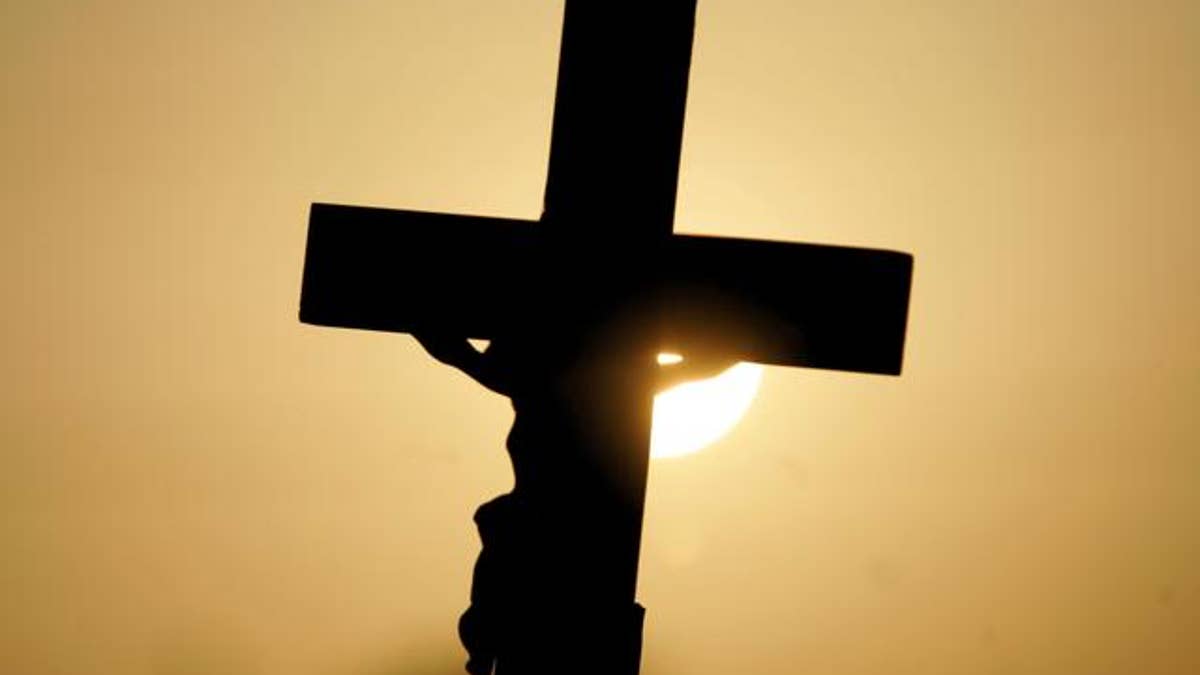
FILE -- A cross is silhouetted against the sun outside the Woodside Hospice in Pinellas Park, Fla. (AP)
Christians celebrate Holy Week and Easter to mark the most significant event in human history: the death, burial and resurrection of Jesus Christ.
Easter is God’s mulligan to humanity.
The phrase Holy Week, coined hundreds of years ago by devout followers of Jesus, refers to the seven full days of reflection, meditation and spiritual activities that captured their feelings of devotion and love for the Savior. These men and women sought to revitalize their spiritual lives by retracing Jesus’ footsteps to the cross, where he was crucified between two thieves in a deliberate effort to humiliate him. (It’s worth noting that even in the midst of his humiliation, Jesus prayed for his executioners’ forgiveness.) Remembering these events strengthened the souls of the early followers, which had become weakened by life’s trials and tribulations.
Easter is God’s mulligan to humanity.
Today, Christians look back on these events not to relive the grief, sadness and morbidity, but to renew our commitment to living on a higher plane, the one Jesus challenged us to live on.
We recognize the cross as a symbol of God’s love, but historically it was an instrument of torture devised by the Greeks and Romans to prolong the death of those deemed guilty of crimes against the state. Since Jesus was guilty of no such thing, the cross had to have a higher meaning — one that could hold the hope of humanity.
Jesus shared its meaning when he said: “This is how much God loved the world: He gave his Son, his one and only Son. And this is why: so that no one need be destroyed; by believing in him, anyone can have a whole and lasting life. God didn’t go to all the trouble of sending his Son merely to point an accusing finger, telling the world how bad it was. He came to help, to put the world right again” (John 3:16-17—The Message Bible).
To this point, the Rev. Billy Graham once commented: “God proved His love on the Cross. When Christ hung and bled and died, it was God saying to the world, ‘I love you.’”
Today, the cross is still a symbol of God’s forgiveness. The penalty of our countless sins against God — all kinds of sins — is death … eternal death. As Jesus hung on the cross, our debt to God was being satisfied. The cross was God’s way of picking up our tab. It was His way of saying: “I forgive you.” The cross was a bridge to God’s forgiveness, and we have been invited to freely walk across it.
Easter gives us a chance to meditate on this astounding example of bigheartedness while pursuing a way to practically model that trait in our own lives. Easter reminds me that I am a Christian — a follower of Christ — and of God’s call for me and every other person to live a more godly, morally based and grace-filled life. Easter also reminds me that I’m to live as a human being — the way Jesus prescribed.
Easter is God’s mulligan to humanity. In golf, a mulligan is a stroke that is replayed from the spot of the prior stroke without any penalty. Your error has been forgiven. You may take the shot again. This Easter make a commitment to meet Jesus for the first time … again. Easter reminds you to keep trying to live the God-kind of life.








































